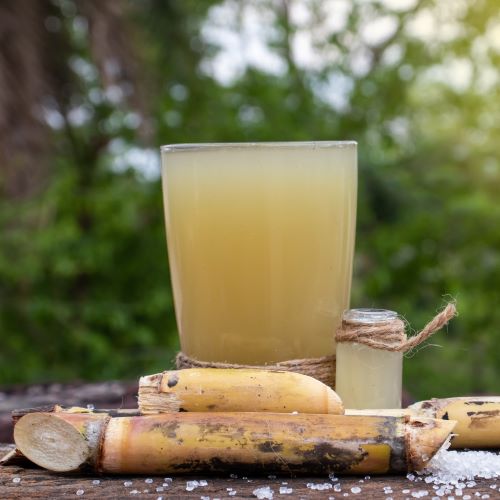15 September 2025

A team of food scientists from Australia and Pakistan has discovered a natural way to significantly extend the shelf life of sugarcane juice, one of the world’s most popular, but highly perishable, beverages.
By adding microwave-dried extracts of mint and coriander to the juice in the production process, its shelf life can be extended from three days up to 14 days, researchers claim in a new paper published in Food Safety and Health.
Sugarcane juice is widely consumed in Southeast Asia, Africa and Brazil, and more recently in North America and parts of Europe, driven by a growing consumer interest in natural, unprocessed beverages with perceived health benefits.
However, it has a short shelf life due to its high sugar and water content, and rapid fermentation once it is exposed to air. Normally, synthetic preservatives are added to slow this process, but they are falling out of favour due to their carcinogenic links.
Lead researcher University of South Australia (UniSA) PhD candidate Zarnab Asif, who undertook this Masters research at the University of Agriculture Faisalabad (UAF), says that mint and coriander are safe, natural alternatives.
“Not only are they natural antioxidants; they also extend the shelf life of sugarcane juice for up to a fortnight. This has huge implications for the global juice industry, particularly in tropical regions where sugarcane juice is often produced and sold fresh on the street,” Asif says.
“We have shown that natural antioxidants from mint and coriander, extracted using microwave drying, can slow microbial growth and prevent the juice from turning dark or developing off-flavours. This is a simple, low-cost solution for the juice and beverage industry.”

The research team tested both traditional methods of methanol extraction and a new microwave-assisted drying extraction method. By heating the leaves, microwaves release extracts containing antioxidants such as polyphenols, flavonoids and vitamin C more efficiently, while avoiding damage to heat-sensitive compounds.
Co-author Dr Tayyaba Alvi from Green International University in Lahore says that the microwave-derived mint extracts displayed antioxidant activity of 74%, higher than both methanol extracts and fresh leaves. Coriander extracts also performed strongly, though slightly less effective than mint.
“When added to sugarcane juice and refrigerated, the microwave extracts kept the juice fresh for two weeks, with minimal changes to colour or flavour,” according to Dr Alvi. “By contrast, juice treated with methanol extracts deteriorated within a few days.”
The research also supports growing consumer demands for natural products.
“People are becoming more cautious about synthetic additives, some of which are linked to health risks,” according to the principal investigator Dr Kashif Khan from UAF.
“Herbal extracts provide a safer, plant-based option that not only preserves juice, but may also add nutritional benefits,” Dr Khan says.
Microwave-assisted drying is also a more sustainable option than methanol extraction, requiring less time, solvent and energy than conventional methods, making it suitable for large-scale applications.
“Because this technology is simple and low cost, it could be adopted by small and medium-sized juice producers in developing countries.”
Future work will explore combining herbal extracts with other preservation methods, such as pasteurisation or innovative packaging, to further extend shelf life.
The study, ‘Shelf-Life Enhancement of Sugarcane Juice with Herbal Extracts: Extracted Through Novel Microwave-Assisted Technique,’ is authored by Zarnab Asif, Tayyaba Alvi, Muhammad Kashif Iqbal Khan and Arslan Kareem.
…………………………………………………………………………………………………………………………
Researcher contact: Zarnab Asif E: zarnab.asif@mymail.unisa.edu.au
Media contact: Candy Gibson M: +61 434 605 142 E: candy.gibson@unisa.edu.au




